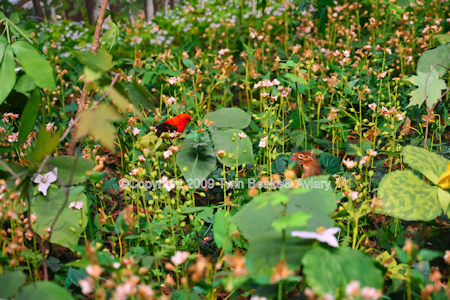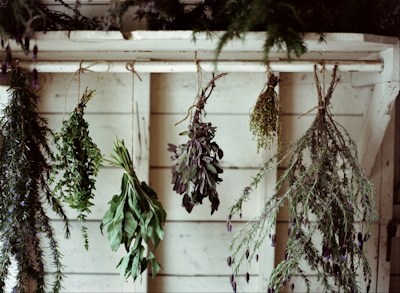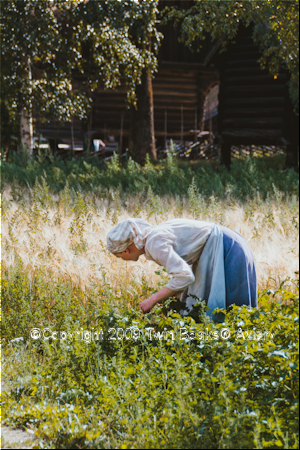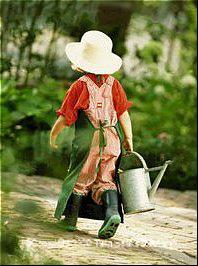
Self- medicating is instinctual in all animals as both a preventative and a cure. Instinct is one of the contributing factors in an animal's not choosing to eat something. How they pick and choose with what to self-medicate is most often determined by smell and sight. It is believed by many researchers that birds will sometimes try different plants until coming upon the one that works. The same holds true for our companion birds. Because birds have not been domesticated, they remain very close to their wild counterparts, both evolutionarily and genetically.
The reasoning behind offering a multiple-herb blend is that herbs are best prescribed to treat the entire bird, not just the clinical signs. This produces a synergistic action while minimizing the potential toxic effect of feeding single herbs. This is an important fact for us to be aware of when offering limited selection. Another pitfall to avoid in herbal treatment is, when choice is minimized, a bird is apt to eat the wrong thing because the proper substance is not available. A good example of this would be the companion parrot munching on a French fry because he needs more Omega fatty acids, triglycerides, etc. in his diet. Definitely not the correct choice, rather a learned behavior or an opportunistic moment.

Use caution in feeding fresh herbs. While these may seem preferable, they mold quickly. Store bought should be organic only and thoroughly washed. Be sure you're feeding the correct part of any herb plant, be it leaves, bark, roots or flowers. Nutrients, minerals, vitamins and healing capabilities come from these various locations. There is great emphasis on the timing of harvest and method of drying of dried herbs. If you're purchasing dried herbs, be careful that you're source is qualified. Incidentally, many birds will eat all parts of a plant, including the roots.
Herbal remedies are much more effective than conventional drug therapy in treating some metabolic diseases, such as liver and kidney disease. They can also be an excellent alternative to antibiotics because of their antifungal and antibacterial effects. Because most birds don't visit the vet until they're very ill, antibiotics or antifungal medications will probably be necessary to get the patient through crisis. Herbs can offer excellent supportive care.
Homeopathy is extremely effective in pet birds. This is when you treat with minute or diluted doses of natural substances (like herbs and tinctures), when those very substances in full strength would cause the same set of symptoms. Homeopathic remedies are so effective with birds because of their high energy level.
Cuttlebone is not the best source of calcium. It is however, testament to how a bird can instinctively consume something that is new or foreign to its natural diet (Cuttlefish is cultivated off the ocean floor, where no bird has traveled), and an adequate beak conditioner. Eggshell calcium is 20% more absorbable than any other form of calcium. And, it doesn't contain the heavy metals, mercury, etc. that other calcium sources can contain.

Formulating the 20-herb blend that constitutes Herb Salad™, and verifying its effectiveness and safety, occurred over a period of 10+ years. This was performed under systematic conditions following strict guidelines. The rationale for some of the herbs seemingly overlapping in functionality is for the following reasons…
 a. Each herb performs a function unique to that particular herb.
a. Each herb performs a function unique to that particular herb.©Copyright 2002-2025 GreenBeaks® Inc. All Rights Reserved
Recommended recourses:
Colorado State University, College of Veterinary and Biomedical Sciences
Academy of Veterinary Homeopathy (AVH), Miami, FL
Baillie JW: Alternative therapy ideas for feather picking
Chapman BM: Homeopathic Treatment for Birds. Saffron Walden Essex, England
McCluggage DM: Avian holistic veterinary medical care
Wynn SG: Emerging Therapies, Using Herbs and Nutraceutical Supplements for Small Animals
McCluggage DM, Higdon PL: Holistic Care for Birds
Clinical Avian Medicine, vol 1 and 2
Herbal Database, HerbMed
©Copyright 2002-2025 GreenBeaks® Inc. All Rights Reserved. Disclaimer
This site is powered by Dairy Air Designs®